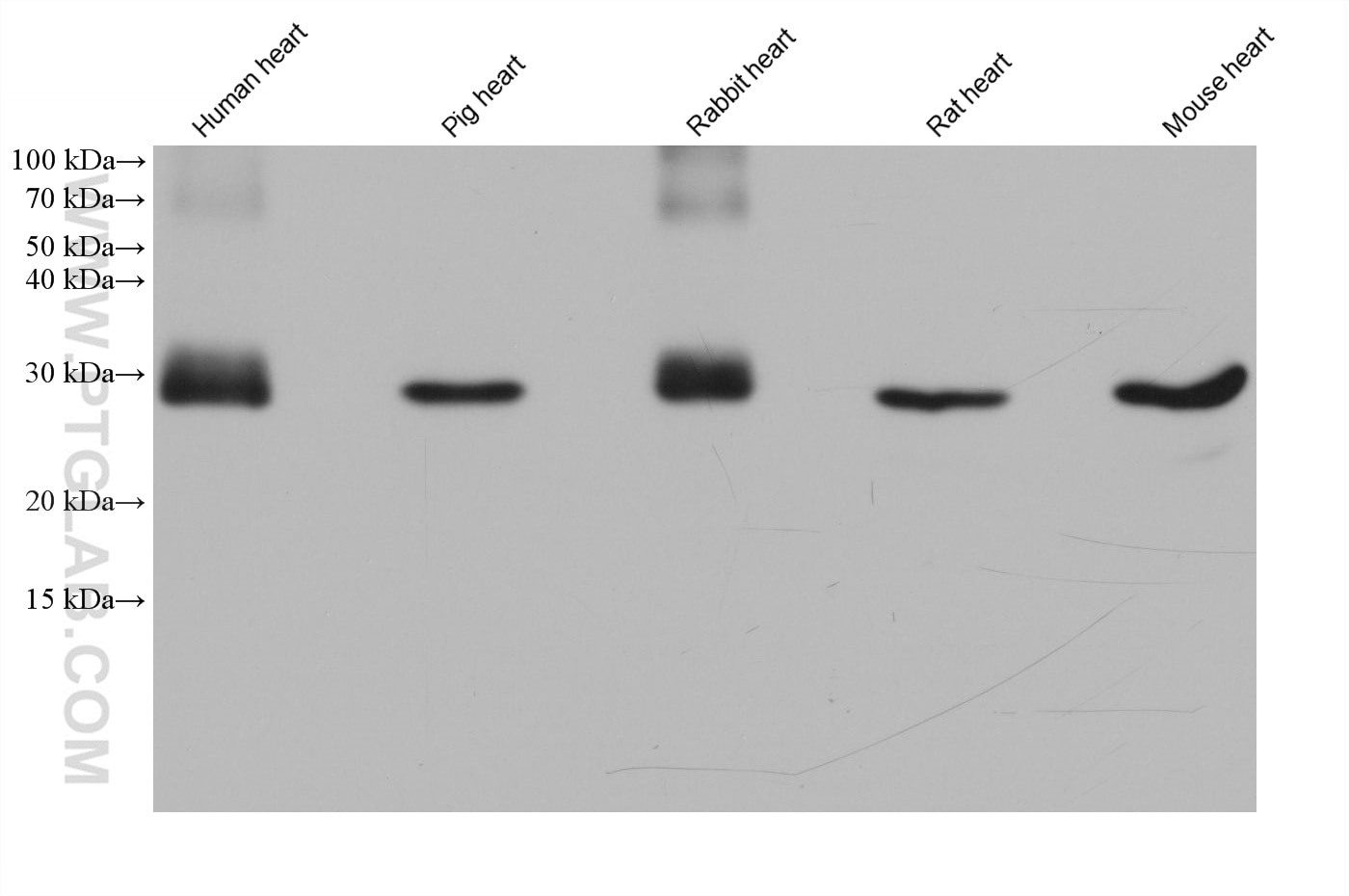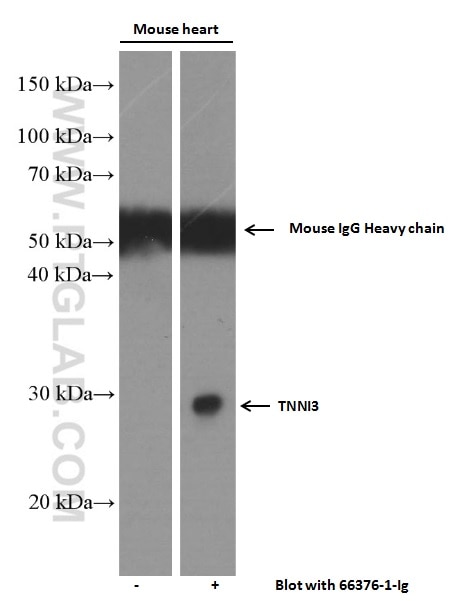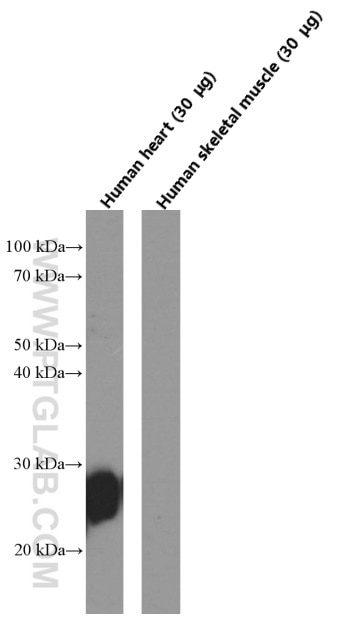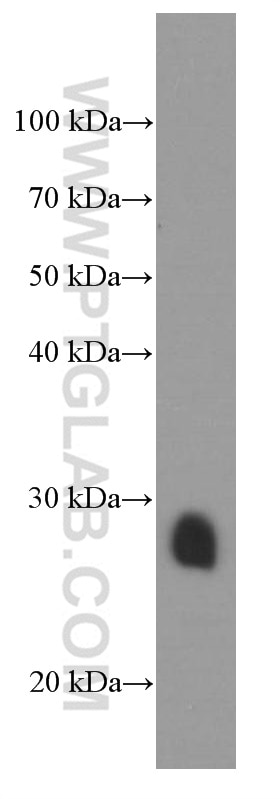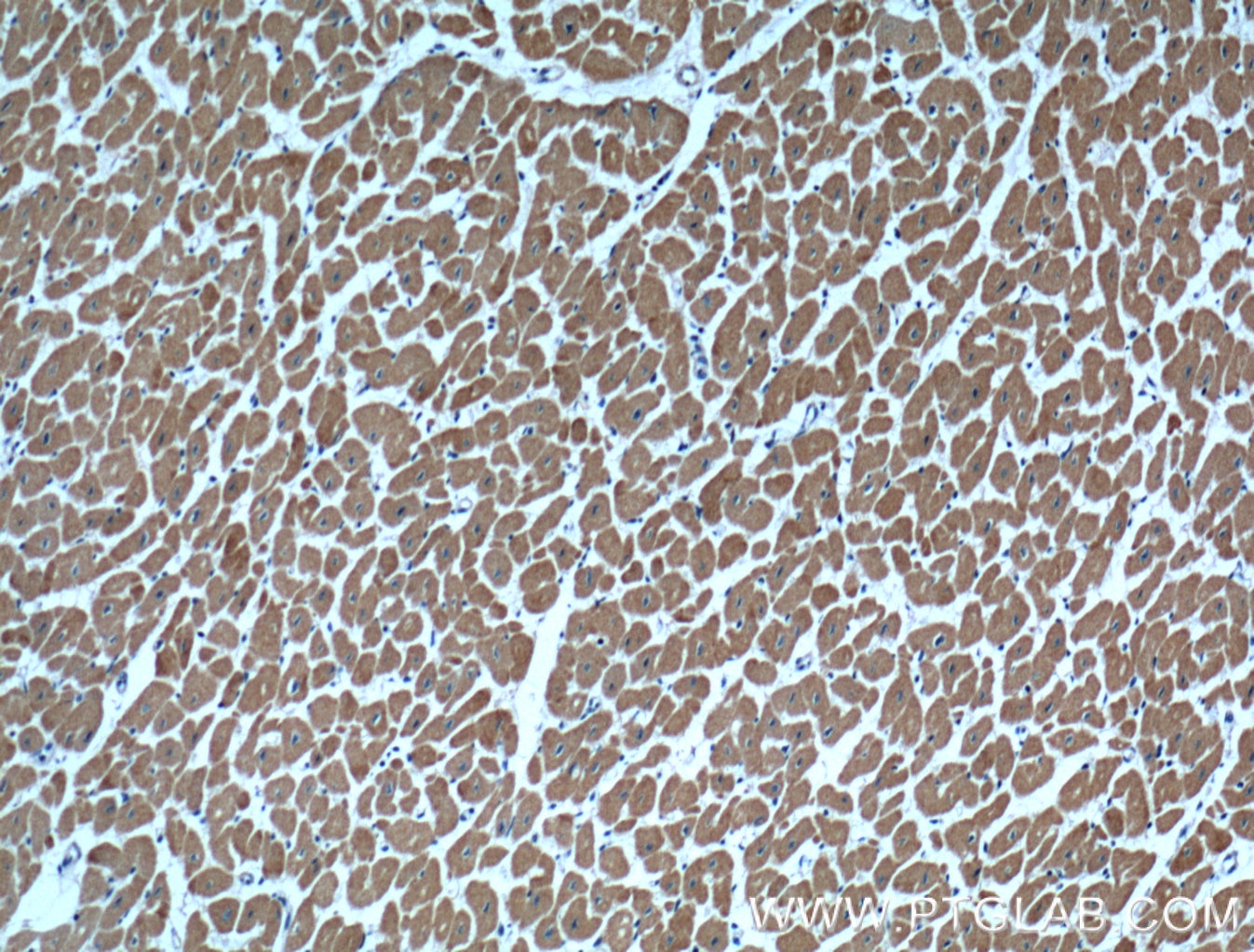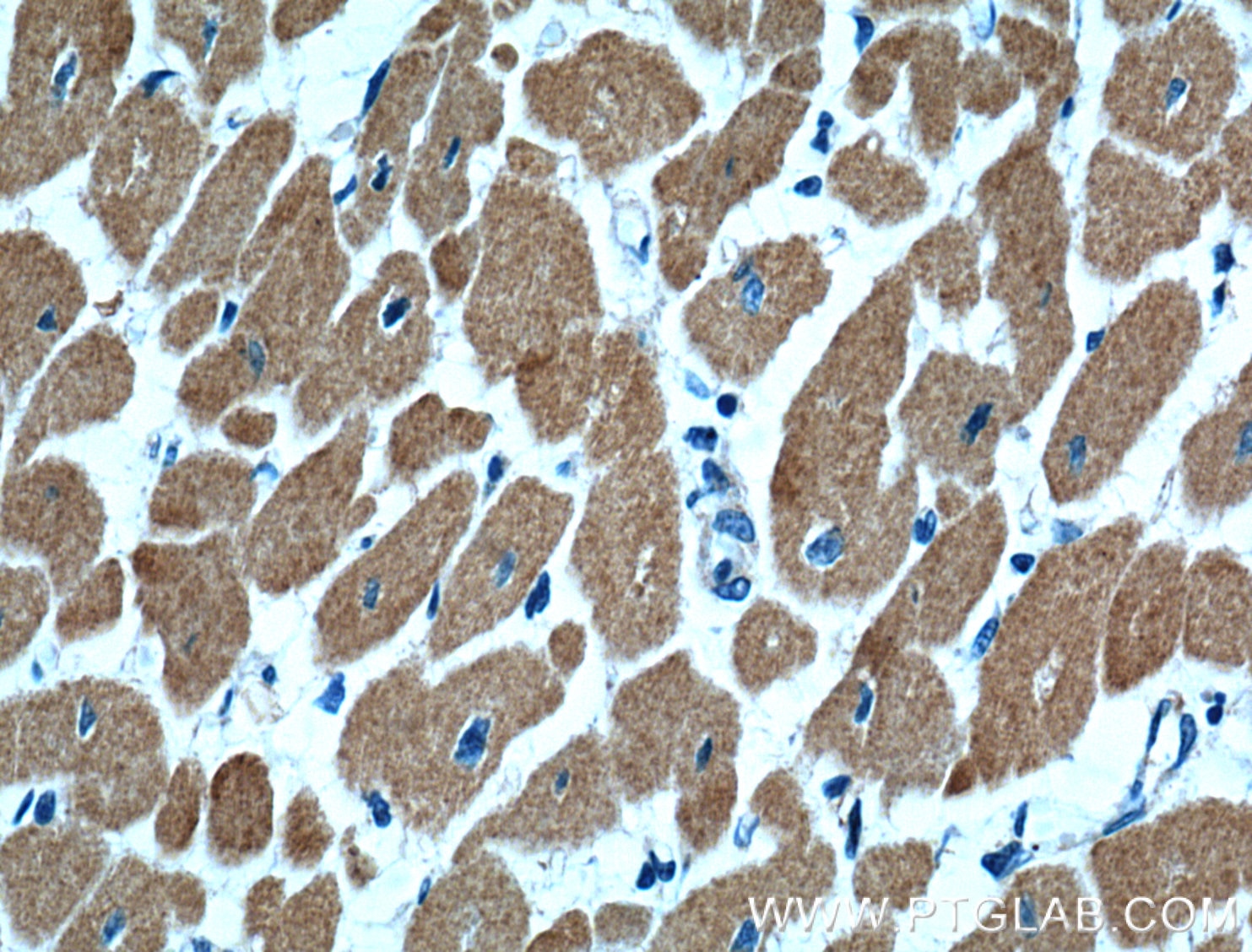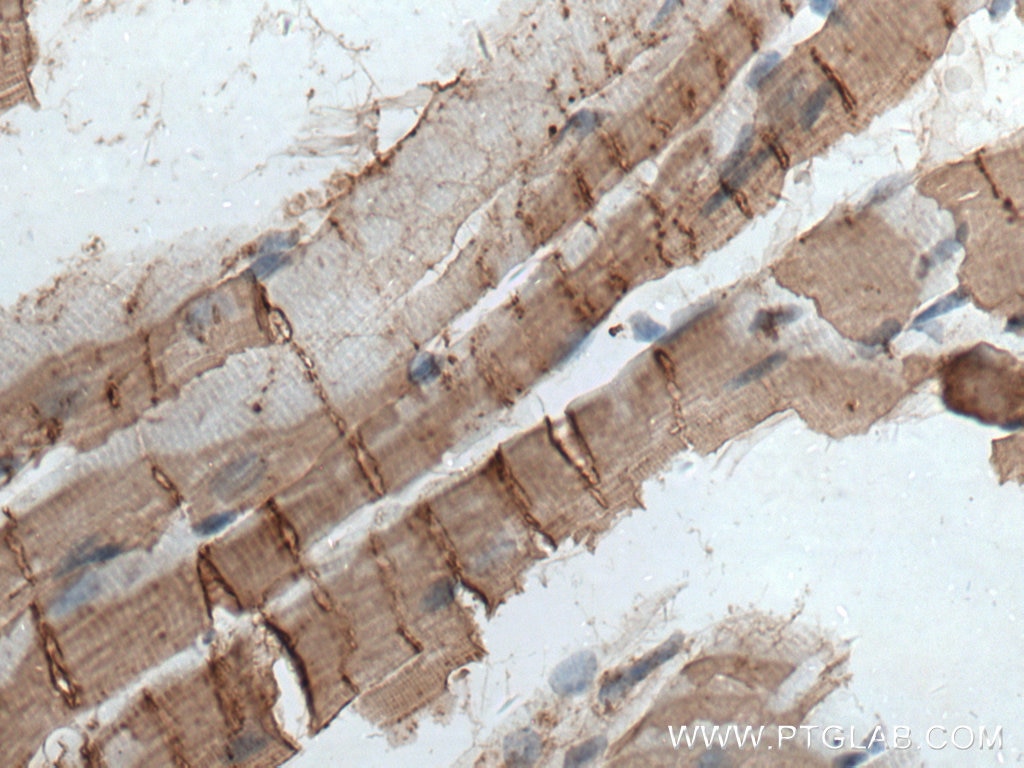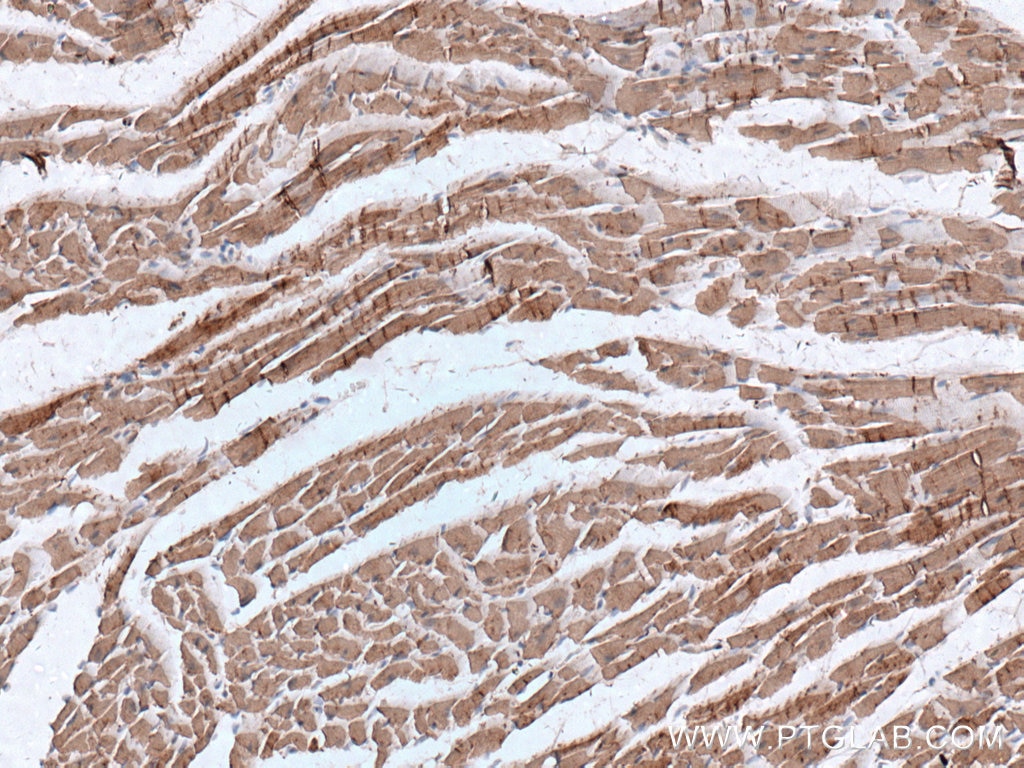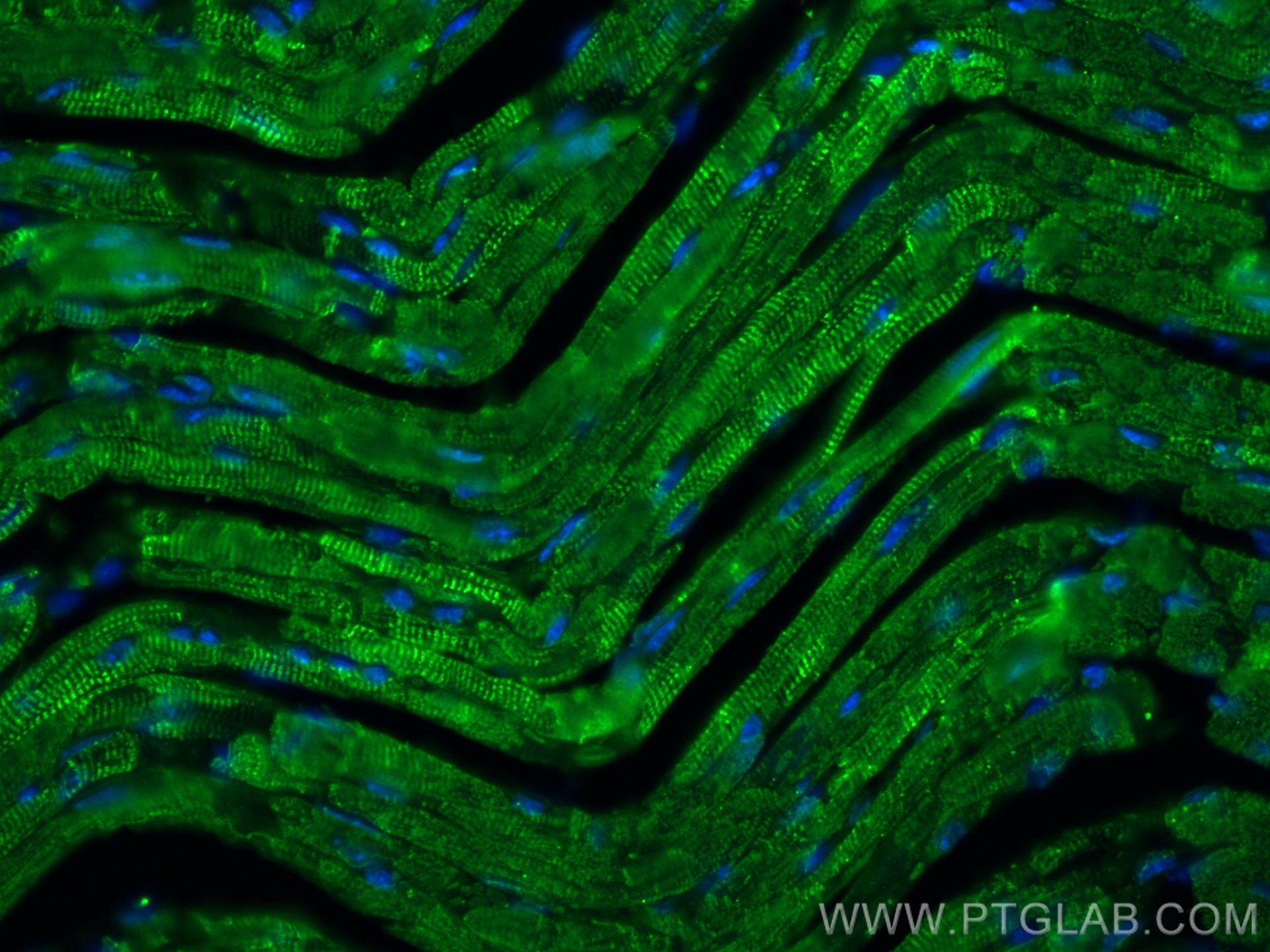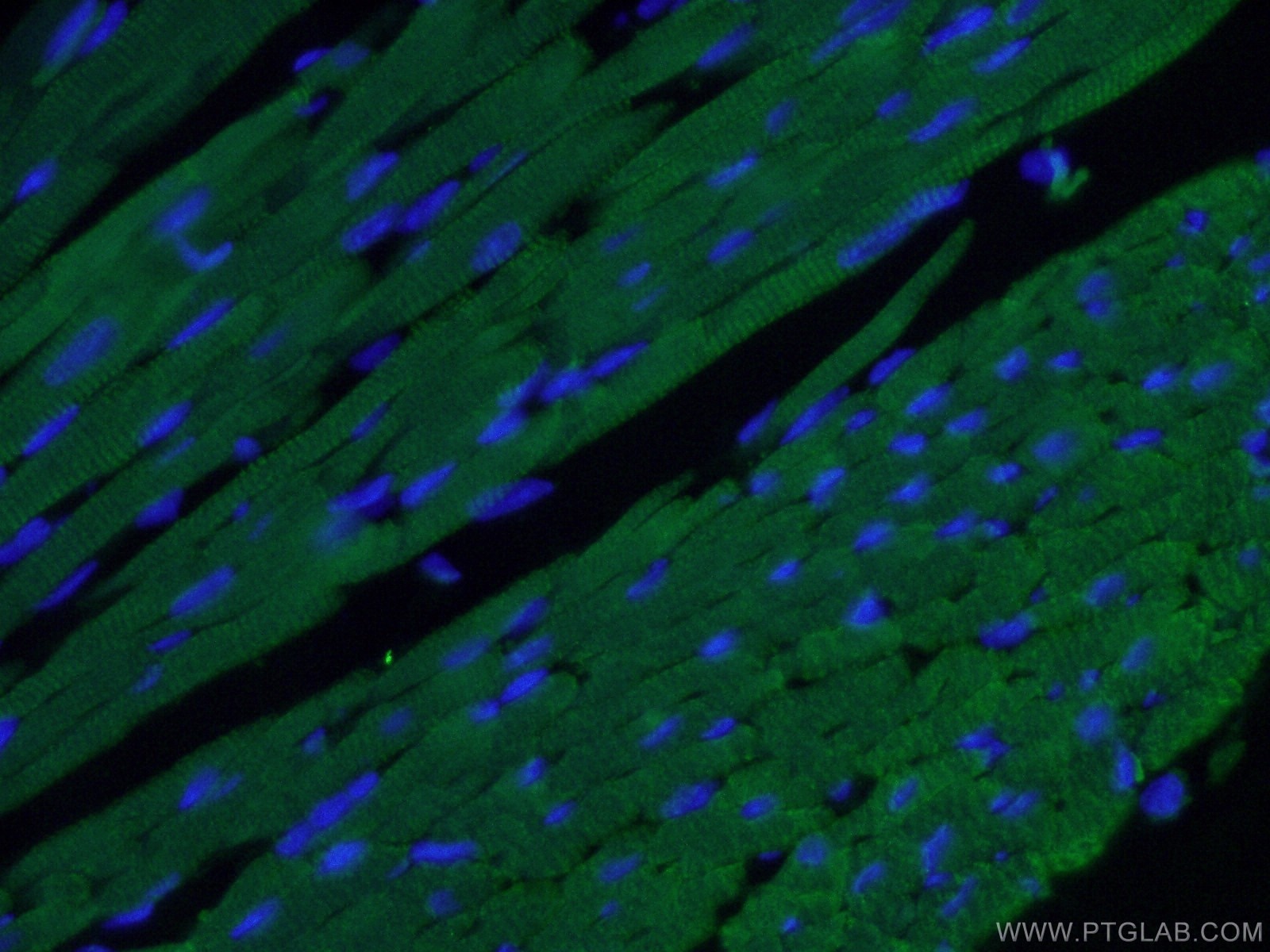Tested Applications
| Positive WB detected in | human heart tissue, rat heart tissue, mouse heart tissue, pig heart tissue, rabbit heart tissue |
| Positive IHC detected in | human heart tissue, mouse heart tissue Note: suggested antigen retrieval with TE buffer pH 9.0; (*) Alternatively, antigen retrieval may be performed with citrate buffer pH 6.0 |
| Positive IF-P detected in | mouse heart tissue |
Recommended dilution
| Application | Dilution |
|---|---|
| Western Blot (WB) | WB : 1:5000-1:50000 |
| Immunohistochemistry (IHC) | IHC : 1:50-1:500 |
| Immunofluorescence (IF)-P | IF-P : 1:200-1:800 |
| It is recommended that this reagent should be titrated in each testing system to obtain optimal results. | |
| Sample-dependent, Check data in validation data gallery. | |
Published Applications
| WB | See 4 publications below |
| IF | See 13 publications below |
Product Information
66376-1-Ig targets Cardiac Troponin I in WB, IHC, IF-P, ELISA, ISFET applications and shows reactivity with human, mouse, rat, pig, rabbit samples.
| Tested Reactivity | human, mouse, rat, pig, rabbit |
| Cited Reactivity | human, mouse, rat, pig |
| Host / Isotype | Mouse / IgG1 |
| Class | Monoclonal |
| Type | Antibody |
| Immunogen |
CatNo: Ag16758 Product name: Recombinant human TNNI3 protein Source: e coli.-derived, PET28a Tag: 6*His Domain: 1-110 aa of BC096165 Sequence: MADGSSDAAREPRPAPAPIRRRSSNYRAYATEPHAKKKSKISASRKLQLKTLLLQIAKQELEREAEERRGEKGRALSTRCQPLELAGLGFAELQDLCRQLHARVDKVDEE Predict reactive species |
| Full Name | troponin I type 3 (cardiac) |
| Calculated Molecular Weight | 210 aa, 24 kDa |
| Observed Molecular Weight | 26-28 kDa |
| GenBank Accession Number | BC096165 |
| Gene Symbol | Cardiac Troponin I |
| Gene ID (NCBI) | 7137 |
| RRID | AB_2881753 |
| Conjugate | Unconjugated |
| Form | Liquid |
| Purification Method | Protein G purification |
| UNIPROT ID | P19429 |
| Storage Buffer | PBS with 0.02% sodium azide and 50% glycerol, pH 7.3. |
| Storage Conditions | Store at -20°C. Stable for one year after shipment. Aliquoting is unnecessary for -20oC storage. 20ul sizes contain 0.1% BSA. |
Background Information
Troponin I (TnI) is the inhibitory subunit of troponin, the structural protein involved in the regulation of striated muscle contraction. Cardiac Troponin I (cTnI) is produced by cardiac muscle. Two other TnI isoforms (slow sTnI and fast sTnI) are produced by slow-twitch and fast-twitch skeletal muscles, respectively. cTnI has been considered as one of the most specific and sensitive markers of myocardial damage like acute myocardial infarction (AMI) for decades. Detection of cTnI in serum is widely accepted as a diagnostic tool in acute coronary syndromes. This antibody is specific to cTnI, but not cross-react with skeletal TnI.
Protocols
| Product Specific Protocols | |
|---|---|
| IF protocol for Cardiac Troponin I antibody 66376-1-Ig | Download protocol |
| IHC protocol for Cardiac Troponin I antibody 66376-1-Ig | Download protocol |
| WB protocol for Cardiac Troponin I antibody 66376-1-Ig | Download protocol |
| Standard Protocols | |
|---|---|
| Click here to view our Standard Protocols |
Publications
| Species | Application | Title |
|---|---|---|
ACS Nano Collagen-Targeting Self-Assembled Nanoprobes for Multimodal Molecular Imaging and Quantification of Myocardial Fibrosis in a Rat Model of Myocardial Infarction | ||
Biosens Bioelectron A handheld testing device for the fast and ultrasensitive recognition of cardiac troponin I via an ion-sensitive field-effect transistor | ||
Stem Cell Reports Physiological calcium combined with electrical pacing accelerates maturation of human engineered heart tissue | ||
Stem Cell Res Ther Intravenously transplanted mesenchymal stromal cells: a new endocrine reservoir for cardioprotection. | ||
J Cell Mol Med Scoparone alleviates Ang II-induced pathological myocardial hypertrophy in mice by inhibiting oxidative stress. |
Reviews
The reviews below have been submitted by verified Proteintech customers who received an incentive for providing their feedback.
FH Refik (Verified Customer) (12-07-2025) | Works well with overnight incubation of human iPSC-derived cardiac cells and cardiac organoids using concentration 1:500-1000 for ICC of 5% PFA fixed and 0.1/1% triton-x permeabilized cells and tissues.
|
FH KARTHIKEYAN (Verified Customer) (11-20-2019) | We used this antibody to stain HL-1 cardiomyocyte cells, and the antibody works really well.
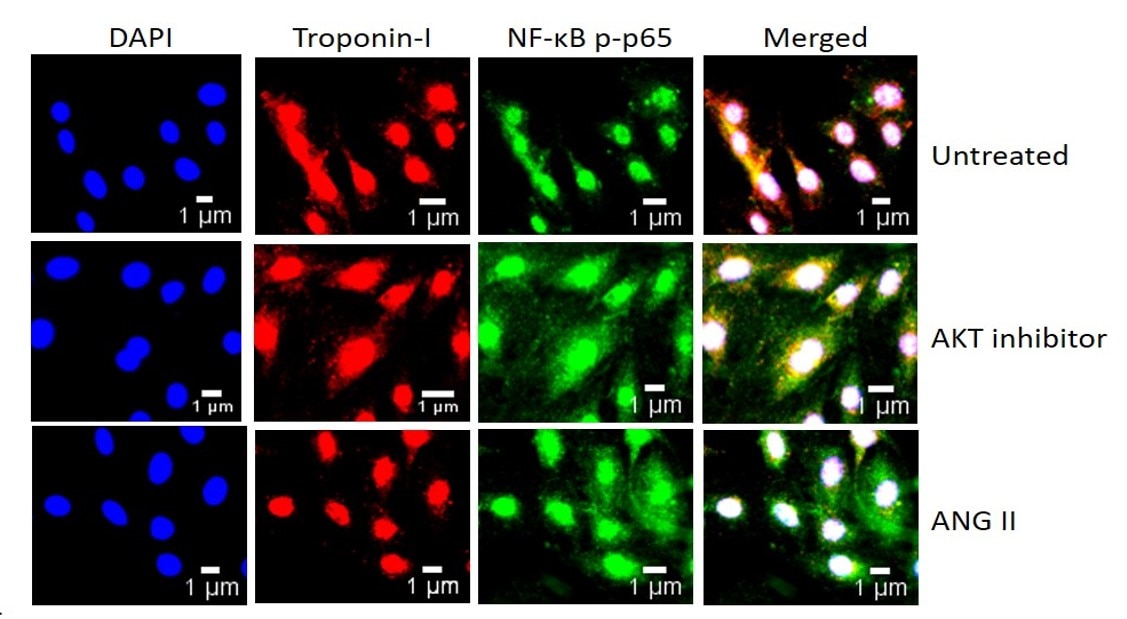 |

